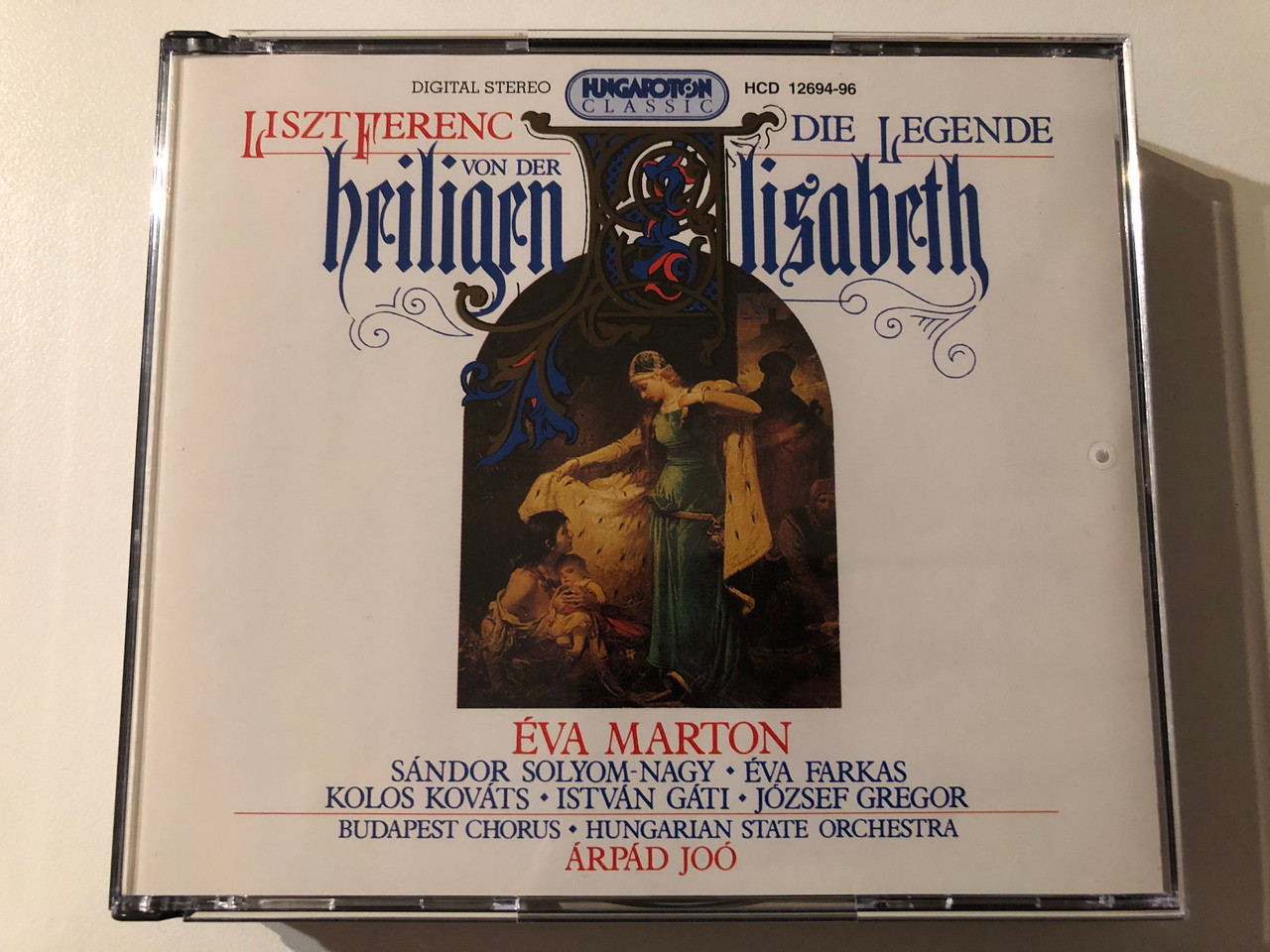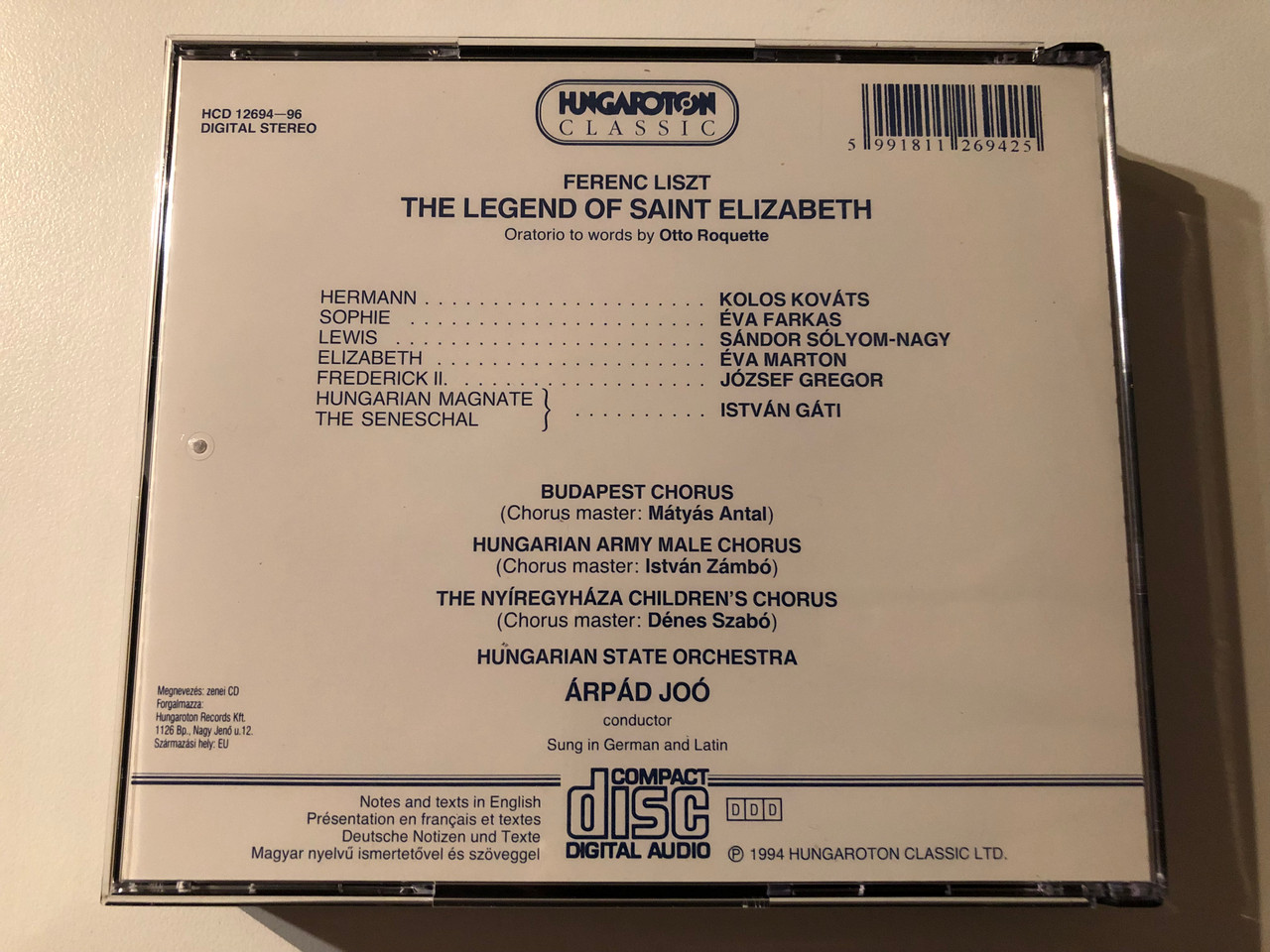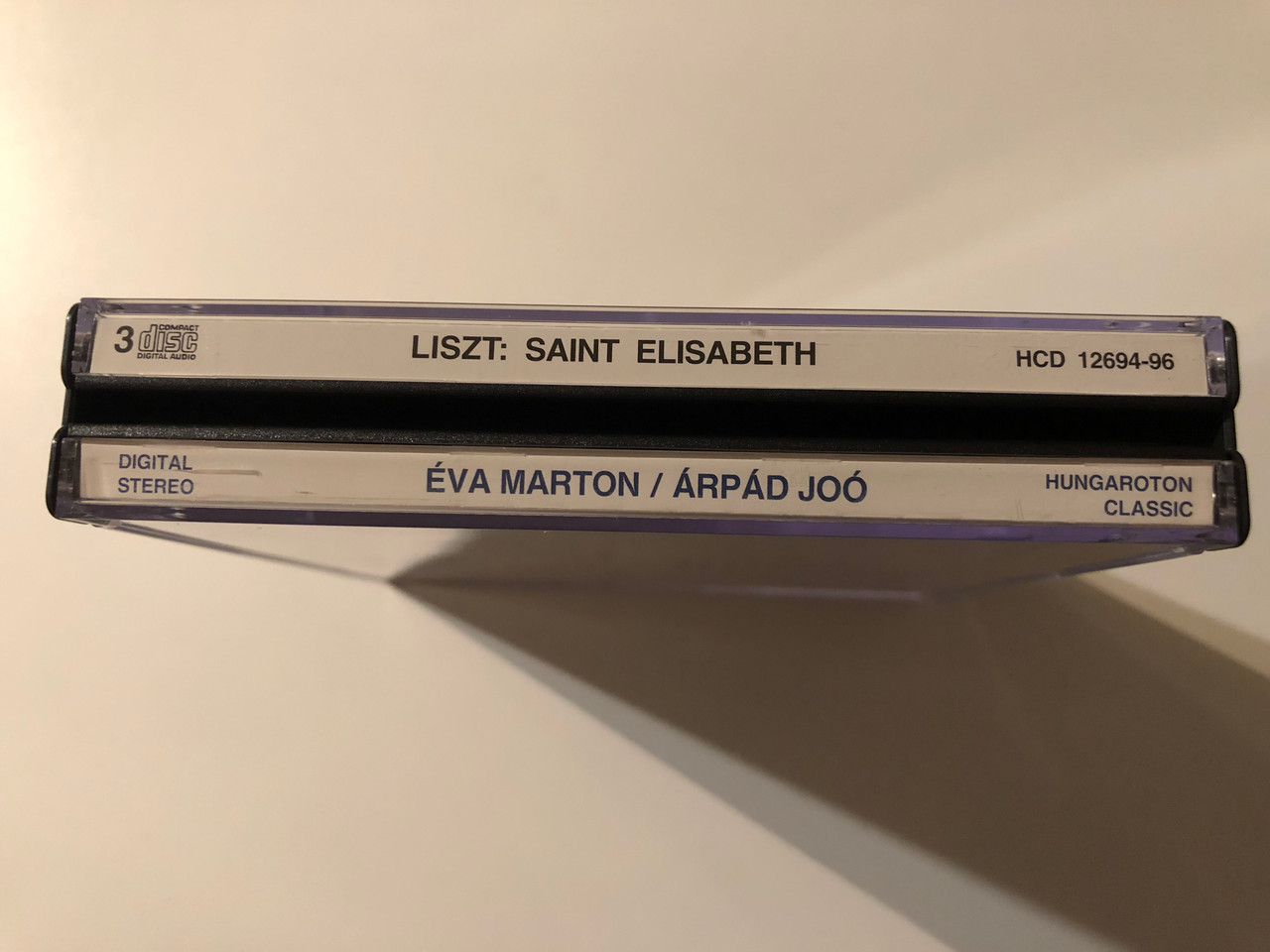Description
Liszt Ferenc: Die Legende Von Der Heiligen Elisabeth - Eva Marton, Sándor Sólyom-Nagy, Éva Farkas, Kolos Kováts, István Gáti, József Gregor, Budapest Chorus / Hungaroton Classic 3x Audio CD, Box Set 1996 Stereo / HCD12694-96-2
UPC 5991811269425
| Label: | Hungaroton – HCD 12694-96-2 |
|---|---|
| Format: |
3 x CD, Album, Box Set
|
| Country: | Hungary |
| Released: |
1996 |
| Genre: | Classical |
| Style: | Romantic |
Tracklist:
| 1 | Első Rész - Bevezetés - 1. Erszébet Megérkezése Wartburgba |
24:38 | |
| 2 | Első Rész (Folytatás) 2. Lajos Örgróf | 20:53 | |
| 3 | Első Rész (Befejezés) 3. A Kereszteslovagok | 23:54 | |
| 4 | Második Rész 4.Zsófia Őrgrófné | 18:06 | |
| 5 | Második Rész (Folytatás) 5. Erszébet | 29:59 | |
| 6 | Második Rész (Befejezés) 6. Erszébet Ünnepélyes Temetése | 20:17 |
- Baritone Vocals [Hungarian Magnate] – István Gáti
- Baritone Vocals [Lewis] – Sándor Sólyom Nagy
- Baritone Vocals [The Seneschal] – István Gáti
- Bass Vocals [Frederick II Of Hohenstaufen] – József Gregor
- Bass Vocals [Hermann] – Kolos Kováts
- Choir – A Magyar Néphadsereg Művészegyüttesének Férfikara, Budapesti Kórus
- Composed By – Liszt Ferenc
- Conductor – Joó Árpádo
- Mezzo-soprano Vocals [Sophie] – Éva Farkas
- Orchestra – Magyar Állami Hangversenyzenekart
- Soprano Vocals [Elizabeth] – Éva Marton
Franz Liszt (German: [ˈlɪst]; Hungarian: Liszt Ferencz, in modern usage Liszt Ferenc [ˈlist ˈfɛrɛnt͡s]; 22 October 1811 – 31 July 1886) was a Hungarian composer, virtuoso pianist, conductor, music teacher, arranger and organist of the Romantic era. He was also a writer, a philanthropist, a Hungarian nationalist and a Franciscan tertiary.
Liszt gained renown in Europe during the early nineteenth century for his prodigious virtuosic skill as a pianist. He was a friend, musical promoter and benefactor to many composers of his time, including Frédéric Chopin, Richard Wagner, Hector Berlioz, Robert Schumann, Camille Saint-Saëns, Edvard Grieg, Ole Bull, Joachim Raff, Mikhail Glinka, and Alexander Borodin.[1]
A prolific composer, Liszt was one of the most prominent representatives of the New German School (Neudeutsche Schule). He left behind an extensive and diverse body of work which influenced his forward-looking contemporaries and anticipated 20th-century ideas and trends. Among Liszt's musical contributions were the symphonic poem, developing thematic transformation as part of his experiments in musical form, and radical innovations in harmony.


































